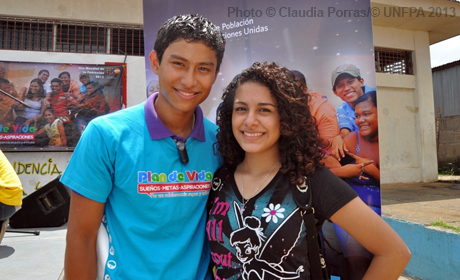-
Country Pages
-
Asia & the Pacific
- Afghanistan
- Bangladesh
- Bhutan
- Cambodia
- China
- India
- Indonesia
- Iran, Islamic Republic of
- Lao People's Democratic Republic
- Malaysia
- Maldives
- Mongolia
- Myanmar
- Nepal
- Pakistan
- Papua New Guinea
- Philippines
- Sri Lanka
- Thailand
- Timor-Leste
- Viet Nam
-
Eastern Europe & Central Asia
- Albania
- Armenia
- Azerbaijan
- Belarus
- Bosnia and Herzegovina
- Georgia
- Kazakhstan
- Kosovo Office
- Kyrgyzstan
- Moldova, Republic of
- North Macedonia
- Serbia
- Tajikistan
- Türkiye
- Turkmenistan
- Ukraine
- Uzbekistan
-
Arab States
- Algeria
- Djibouti
- Egypt
- Iraq
- Jordan
- Lebanon
- Libya
- Morocco
- Oman
- Palestine
- Somalia
- Sudan
- Syrian Arab Republic
- Tunisia
- Yemen
-
East & Southern Africa
- Angola
- Botswana
- Burundi
- Comoros
- Congo, the Democratic Republic of the
- Eritrea
- Eswatini
- Ethiopia
- Kenya
- Lesotho
- Madagascar
- Malawi
- Mauritius
- Mozambique
- Namibia
- Rwanda
- Seychelles
- South Africa
- South Sudan
- Tanzania, United Republic of
- Uganda
- Zambia
- Zimbabwe
-
Latin America & the Caribbean
- Argentina
- Bolivia, Plurinational State of
- Brazil
- Chile
- Colombia
- Costa Rica
- Cuba
- Dominican Republic
- Ecuador
- El Salvador
- Guatemala
- Haiti
- Honduras
- Mexico
- Nicaragua
- Panama
- Paraguay
- Peru
- Uruguay
- Venezuela, Bolivarian Republic of
- Caribbean (multi-country)
-
West & Central Africa
- Benin
- Burkina Faso
- Cabo Verde
- Cameroon
- Central African Republic
- Chad
- Congo
- Côte d'Ivoire
- Equatorial Guinea
- Gabon
- Gambia
- Ghana
- Guinea
- Guinea-Bissau
- Liberia
- Mali
- Mauritania
- Niger
- Nigeria
- Sao Tome and Principe
- Senegal
- Sierra Leone
- Togo
-

UNFPA Nicaragua
Active in Nicaragua since 1974, UNFPA supports the inclusion of issues related to population dynamics, young people, sexual and reproductive health, and gender-based violence into public policies. Nicaragua has successfully incorporated reproductive rights in its health and education laws and policies, and made headway in reducing maternal mortality. But key challenges remain, including a high adolescent pregnancy rate. UNFPA strengthens capacities to provide high quality maternal health and newborn care, comprehensive sexuality education for young people, and investments in the country’s “demographic dividend”. It also backs measures to prevent and respond to gender-based violence.
Population
 Population aged 0-14
Population aged 0-14 Population aged 15-64
Population aged 15-64 Population aged 65+
Population aged 65+
Sexual and reproductive health
 Births attended by skilled health personnel
Births attended by skilled health personnel
Family Planning
 Modern method
Modern method
Education
Gender, Rights, and Human Capital
Harmful Practices
Minimum Initial Services Package
27Life skills programmes for girls
130,011News
Judges in Nicaragua learn to see the world through the eyes of vulnerable women
At only 19, Michelle Zeledón, from the north of Nicaragua, has been through a lot. She watched her father beat her…
The women of Amak: Justice for rural survivors of gender-based violence
BOSAWAS, Nicaragua – “He used to beat me every time he came home drunk,” said Elena…
Pagination
We use cookies and other identifiers to help improve your online experience. By using our website you agree to this, see our cookie policy


Social Updates
Tweets from UNFPATürkiye